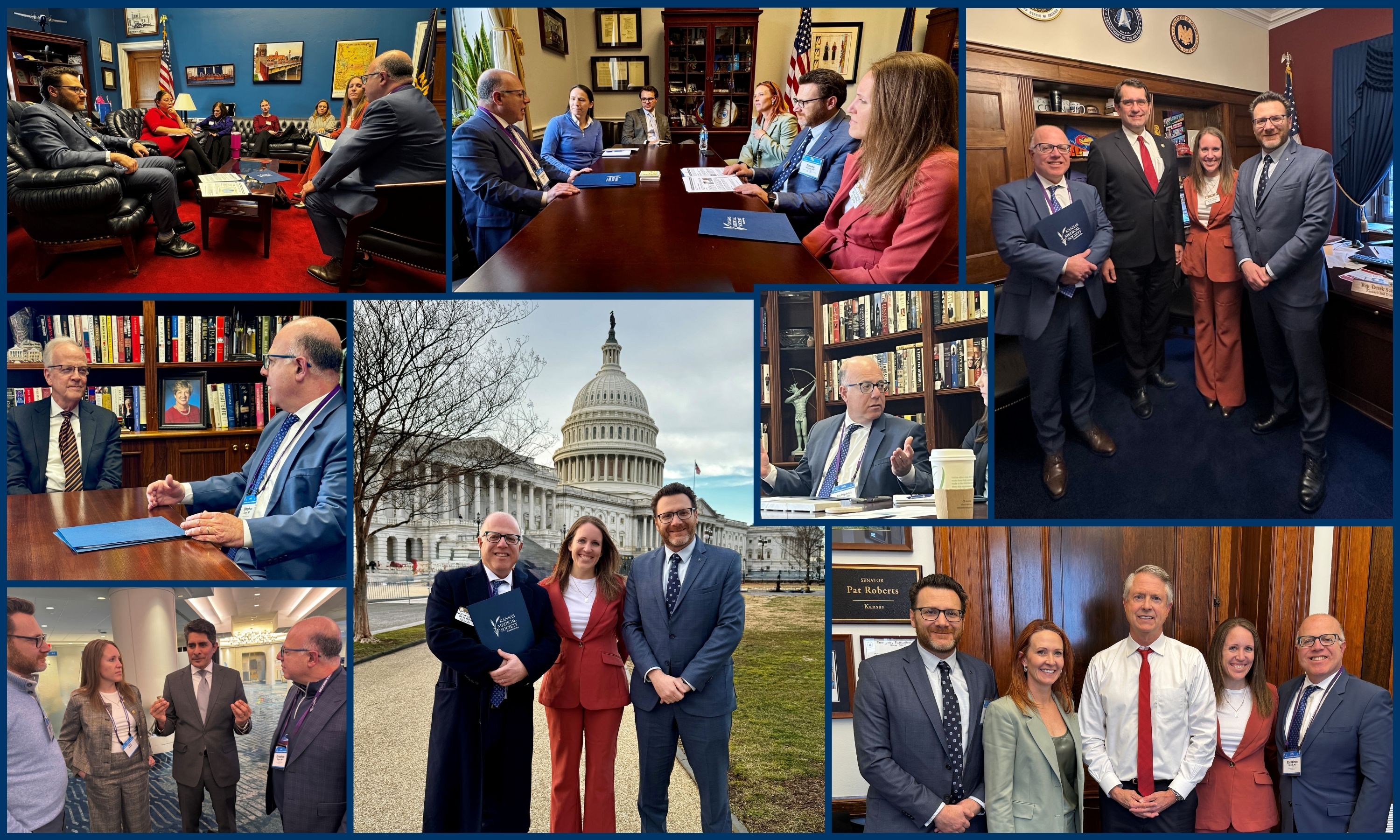Welcome to Kansas Medical Society
AMA National Advocacy Conference 2026
Advocacy at the National Level
Last week, leadership from the Kansas Medical Society and the Medical Society of Sedgwick County traveled to Washington, DC to advocate on behalf of Kansas physicians. Meetings were held with the Kansas congressional delegation, and each office was provided with comprehensive information outlining the challenges facing physicians and their patients across our state.
The discussions centered on Medicare payment reform, the administrative burden of prior authorization and its impact on patients’ timely access to care, Medicare Advantage and post-acute care accessibility, and other critical issues affecting the House of Medicine. These conversations ensured that the realities facing Kansas physicians were clearly communicated and thoughtfully considered.
The legislative process is often deliberate and measured. Fittingly, the word “Congress” derives from the Latin congressus, meaning “walking together” or “meeting.” Progress is rarely immediate, but the word itself implies that meaningful and lasting change requires persistence, collaboration, and sustained engagement.
Advocacy efforts will continue in the months and years ahead. The strength of our collective voice remains one of our most effective tools. Members are encouraged to stay engaged and involved as we work together to advance policies that support physicians and protect patients’ access to care across Kansas.
If you are not currently a member and are interested in becoming more engaged, click here.












